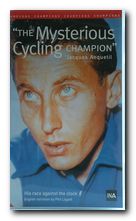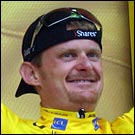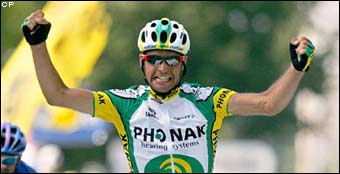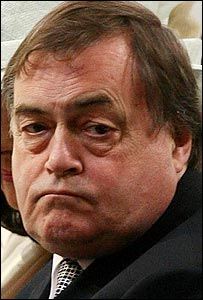 Let's get this latest doping scandal into longer perspective - but not a happy one. Cycling has been dogged by doping for years and years. The first time I ever suspected something was amiss was when I saw pictures of Jaques Anquetil after his amazing tour and time trial performances. His eyes looked as if he had just come off another planet. And it was later revealed (if I remember correctly) that he was taking amphetamines - which at that time were little understood, and certainly not recognised as a 'drug'.
Let's get this latest doping scandal into longer perspective - but not a happy one. Cycling has been dogged by doping for years and years. The first time I ever suspected something was amiss was when I saw pictures of Jaques Anquetil after his amazing tour and time trial performances. His eyes looked as if he had just come off another planet. And it was later revealed (if I remember correctly) that he was taking amphetamines - which at that time were little understood, and certainly not recognised as a 'drug'.
Not too long after Tommy Simpson died on Mont Ventoux because he had been taking the same drugs. All sorts of euphemistic explanations were offered at the time. Not necessary. Just look at Tommy's eyes in pictures at the time. There's one just after he had won the world championships where he looks as if they are popping out of his head.
Coming nearer in time, I always thought that the performances of the two Dutch climbers Stephen Rooks and Gert Jan Theunisse were quite clearly chemically enhanced during the Tour.
Fast forward a few years. Michel Pantani knocking shit out of all the other climbers. I saw a magazine the other day which recorded his ascent of Alpe d'Huez being the fastest on record. Sure - but drug assisted. And a couple of years later he committed suicide with a narcotics overdose.
France's polka-dot star for many years, Richard Virenque, was the same. All those spectacular moutain-top triumphs were done on drugs, and as soon as he stopped taking the drugs, he stopped winning.
Then we come to those riders whose performances suddenly become dramatically enhanced. Bjarne Riis was a domestique then suddenly a Tour winner. David Millar (the Tim Henman of British cycling) was winning time trial stages in the Tour against every other rider. Now we know he was on drugs. He paid his dues of two years in the wilderness, and now he's back - to results half way down the general classification.
Then there's the question of Lance Armstrong. The Sunday Times has accused him of taking drugs - and had to apologise to the court in actions he has taken against them. So officially there is no proven case of Armstrong doping. But I'll tell you what there is against him. Try to think of another cycle champion who has won so few other races, except for the Tour. Other greats win the Milan-San Remo, the Fleche Wallone, the Grand Prix du Nations. But in the seven consecutive years that he won the Tour de France, Armstrong only ever won the Critérium du Dauphiné Libéré, which is considered as a warm-up for it. Seems very fishy to me.
Floyd Landis dropped eight minutes in one stage, then pulled back the same time the next day. We don't yet know if his B-test will be positive or not. But my goodness the pattern is there.

















